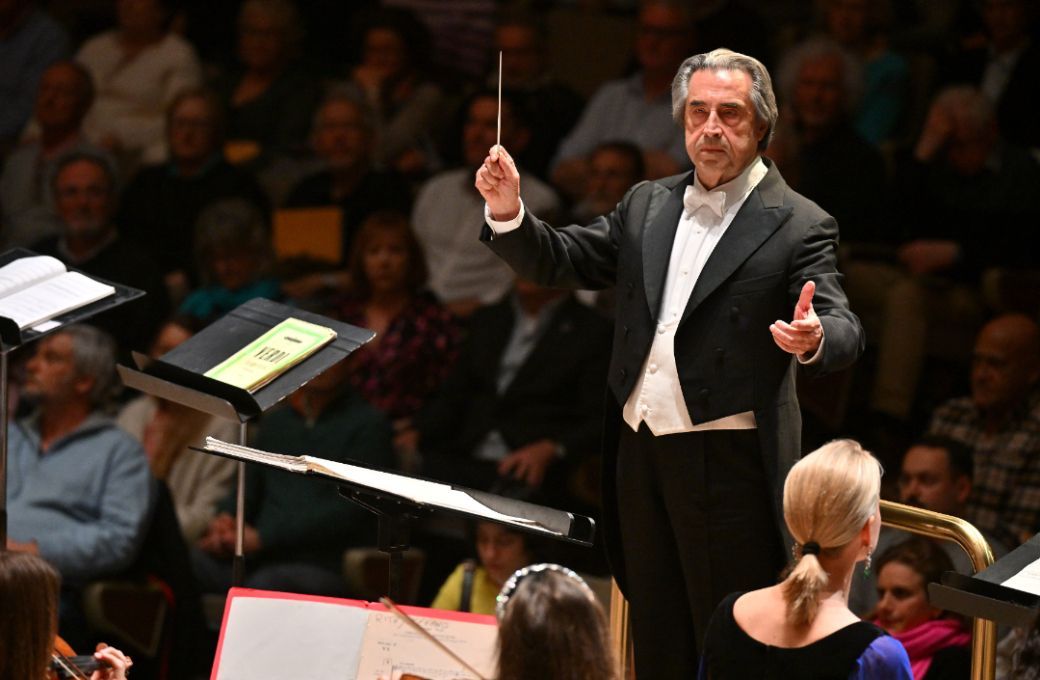Not every occasion can be described as an event, but the return of Riccardo Muti to a London podium after some 15 years for a concert with the orchestra he began helming when Edward Heath was Prime Minister, a concert whose sole work – Verdi's Messa da Requiem – was one of the great masterpieces by a composer to whom Muti is inextricably linked as one of his greatest living interpreters... Well, Debrett's may disagree, but that strikes me as a happy example of a classical music ‘event’.

A lifetime of study and experience was poured into this performance. I cannot recall the Philharmonia sounding better. The hallmarks of a Muti performance – microscopic attention to detail, clarity of sound, balance and harmony – were on display throughout, but the most lasting impression was a sense of inexorability, of being driven, impelled through the architecture of the work through to the conclusion. That sense of the whole was always tangible, but never at the expense of the moment. The Introit was hushed, but not melodramatic, a murky bleakness over the word “Requiem” contrasting with a light-enfused “et lux perpetua luceat eis”. There was a languor in the pace of the Kyrie, against which a throb, almost pleading, to the first violins.
The famous Dies irae sounded fresh; Muti’s control here was palpable, with the glorious power of the brass – the trombones on magnificent form – going full blast, the timpani and bass drum pounding, and yet the sound was not overwhelming. There was so much detail within each movement to enjoy, such as the ebb and flow in the Recordare, glorious dying strains of the Lacrimosa which Muti guided out with gentle motions of the left hand, and the lightness of the violins in the Offertory, so deftly balanced against the cellos. The Lux aeterna had woodwind tones of an almost pastoral nature, fragrant and soft; nothing about this performance was maudlin, yet everything felt weighted, special, sacred.
Only two of the quartet of soloists originally advertised made it to the performance, with a particularly late arrival from bass Will Thomas, announced a few hours before the performance. Elīna Garanča’s soaring mezzo, striking in both the Liber scriptus and the Lacrimosa, showed perfect diction and a real sense of meaning in the text, with registers integrated and a top that bloomed. Similarly, Piotr Beczała’s tireless higher register impressed, giving us words that went beyond the operatic to a more numinous, undramatic performance. The phrasing in his Ingemisco was rich and full, unrushed and elegant in delivery, and his bright tenor melded beautifully in the Lux aeterna trio with Garanča and Thomas. If Thomas’ performance slightly lacked authority, it was adequately compensated for in his solemn and sensitive delivery, his bass clear and expressive in the Mors stupebit.
Marie Lys, another generous stand-in, showed a light and clear soprano, but seemed at times slightly overwhelmed. Hers is an attractive voice, but it is not the largest instrument and in the louder moments it didn’t always rise across the orchestra; a slight tendency to look down at the score may also have hindered her performance from really taking off. The Philharmonia Chorus were on top form: well-drilled, crisp diction, precise and agile at top and bottom, deeply responsive to the podium.
In many ways, this was the sort of performance that can only come with decades of engagement with the score – grand, yet contemplative, bold yet full of detail, with a confidence that allowed it to eschew hyperbole in favour of something greater. Yes, this was an event, one that will not be forgotten quickly.


